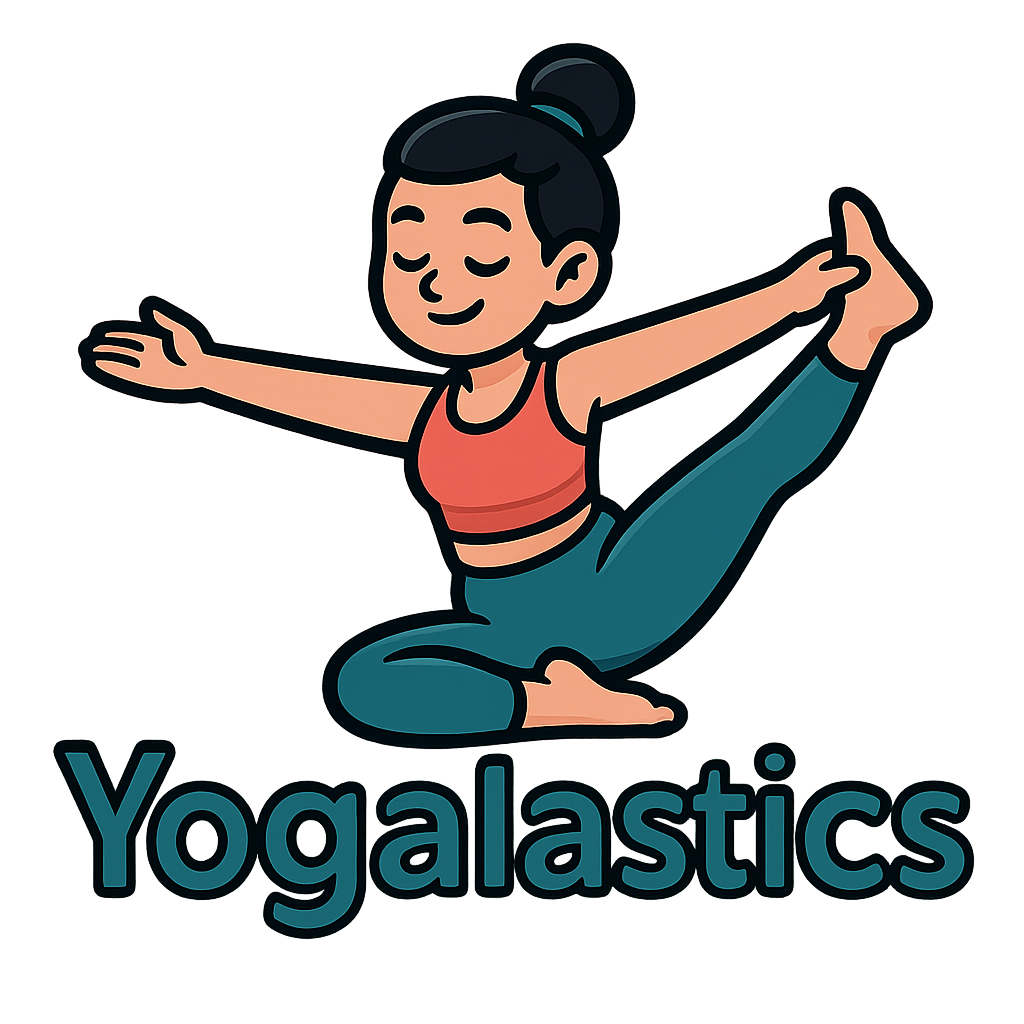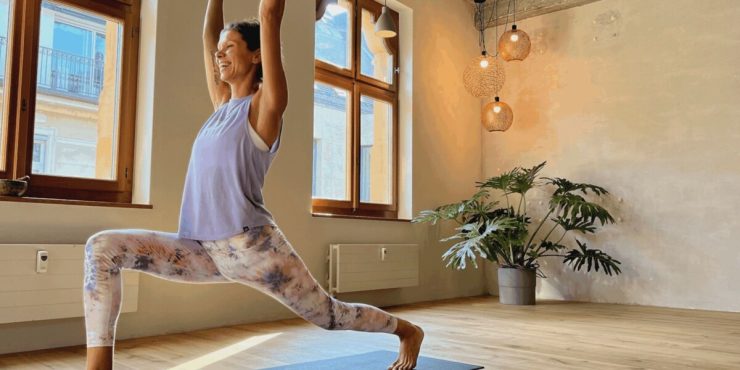I never used to pay attention to how I spoke to myself. That voice in my head was sharp, demanding, often unkind. Every small mistake felt like a failure, every imperfection something to fix or hide. It took a toll—on my energy, my confidence, my relationships. Then, I began to explore yoga not just as a physical practice, but as a path to healing the way I treated myself. That’s where my journey with yoga for self-compassion and kindness began.
This practice didn’t change me overnight. But each time I returned to the mat, I noticed something softening. Instead of pushing myself harder, I started listening. Instead of criticizing my body, I began to thank it. The shift was subtle, but it transformed the way I relate to myself.
Yoga for self-compassion and kindness isn’t about being passive or avoiding growth. It’s about rooting that growth in care, presence, and acceptance. Let me share what this practice looks like in my daily life—and how it can help you, too, create a gentler, more loving relationship with yourself.
Why Self-Compassion Matters
It’s easy to offer kindness to others. We’re taught to be polite, patient, and forgiving with friends, family, and even strangers. But when it comes to ourselves, the tone often shifts. I used to believe that being hard on myself was a kind of discipline. That self-criticism would motivate me to do better. But in truth, it drained me.
What I’ve learned is that self-compassion isn’t self-indulgence. It’s not weakness. It’s the foundation of emotional resilience, creativity, and true well-being. When I treat myself with kindness, I’m more open, more grounded, and more capable of showing up for life fully.
Yoga makes this possible in a way no other practice has. On the mat, I get to practice awareness without judgment. I get to meet my edges with breath instead of force. And over time, that compassion seeps into everything else I do.
Shifting the Inner Dialogue
Every time I step onto the mat, I meet my inner voice. Some days, it’s gentle. Other days, it’s critical. Yoga has become a mirror for that voice—a space where I can notice how I speak to myself and choose a different tone.
In difficult poses, I used to think, “You’re not strong enough,” or “Why can’t you do this?” Now I try to say, “This is challenging, and that’s okay,” or “Let’s explore this together.” It sounds small, but this shift in language changes everything.
That’s why I return again and again to yoga for self-compassion and kindness. It gives me the chance to rewrite my inner script, one breath at a time.
The Role of Breath in Softening
My breath tells me everything I need to know about how I’m treating myself. When I’m tense, my breath is shallow. When I’m afraid, I hold it. But when I’m kind to myself—when I let go of judgment and soften into the moment—my breath deepens naturally.
Breathing with awareness is one of the simplest and most powerful ways I reconnect to compassion. Each inhale becomes a way to say, “You’re enough.” Each exhale becomes an invitation to release pressure and expectation.
I’ve started incorporating specific breathwork techniques into my self-compassion practice. Long, slow exhales. Gentle retention. Even humming on the exhale to soothe my nervous system. These small tools anchor me, especially when my mind is loud or self-critical.
Breath brings me back to kindness. Every time.
Movement as an Expression of Care
One of the things I love most about yoga is how it turns movement into a form of care. I no longer move just to burn calories or stretch muscles. I move to feel, to listen, and to honor what my body needs.
Some days that means flowing gently through cat-cow and child’s pose. Other days it means lying on the floor, doing nothing but breathing. And some days it means strong, steady sequences that remind me of my inner power.
The difference now is the intention. I don’t move to punish or push. I move to connect. To show myself the same love I’d offer a friend. Yoga for self-compassion and kindness invites me to ask, “How do you want to feel today?”—and then to let that guide my practice.
Letting Go of Perfection
I used to think that yoga meant perfect poses, steady balance, deep backbends. I compared myself constantly—to others in class, to photos on social media, to the version of myself I thought I should be.
But real yoga doesn’t ask for perfection. It asks for presence.
When I stopped performing and started practicing, I discovered a whole new relationship with the mat. I stopped worrying about what I looked like and started focusing on how I felt. I gave myself permission to fall, to wobble, to rest.
That permission was revolutionary. It wasn’t just about yoga—it was about life. I realized I could let go of needing to be perfect and start trusting that I was enough, even in progress.
Yoga for self-compassion and kindness reminds me every day that worthiness isn’t something to earn. It’s something to remember.
Using Poses That Nurture
Certain poses lend themselves beautifully to self-compassion. I find myself returning often to forward folds, supported heart openers, and long-held hip stretches. These shapes invite stillness and surrender. They ask me to slow down and notice.
One of my favorites is reclined bound angle pose with props under my knees and spine. I place one hand on my belly, one on my heart, and just breathe. It feels like a hug from the inside.
Child’s pose is another space of refuge for me. When I rest my forehead on the mat and stretch my arms forward, I feel supported. I feel small in the best way—not insignificant, but cared for.
These aren’t just physical postures. They’re emotional landscapes. Each one is a chance to say, “You’re safe. You’re okay. You can rest now.”
Incorporating Loving-Kindness Meditation
I began pairing my yoga practice with a short loving-kindness meditation, also known as metta. At the end of my movement, I sit quietly and repeat simple phrases:
May I be safe.
May I be happy.
May I be healthy.
May I live with ease.
At first, it felt strange. It was easier to say it for others than for myself. But over time, the words began to land. I started believing them.
Practicing yoga for self-compassion and kindness often leads me to this quiet space. It’s not always about doing. Sometimes it’s about sitting still and offering myself love without needing to earn it.
Recognizing Triggers Without Judgment
There are still days when old patterns show up. When I judge my body, when I expect more than I have to give, when I feel like I’m not doing enough. But yoga helps me recognize those moments without shame.
Instead of spiraling, I notice. I breathe. I ask, “What’s beneath this thought?” I try to bring in curiosity instead of criticism.
This awareness is one of the greatest gifts of yoga. It creates space between stimulus and response. It gives me the choice to speak to myself with kindness, even when it’s hard.
Yoga for self-compassion and kindness doesn’t make me immune to self-doubt. But it gives me tools to meet that doubt with grace.
Extending Kindness Beyond the Mat
One of the beautiful things about this practice is how it spills over into the rest of my life. The more compassion I offer myself, the more I have to offer others. I find that I’m more patient, more forgiving, more generous—not because I’m trying to be, but because I’m resourced.
When I’m grounded in kindness toward myself, I’m less reactive. I’m less defensive. I don’t need to prove or protect as much. I can show up with authenticity and presence.
This ripple effect is why I keep returning to yoga for self-compassion and kindness. It’s not just about me. It’s about creating a more compassionate world—one breath, one pose, one person at a time.
Letting Self-Compassion Be a Practice, Not a Goal
I used to think self-compassion was a destination. Something I’d finally arrive at and master. But now I see it differently. It’s not a place I reach. It’s a practice I return to.
Some days I feel deeply connected to myself. Other days I struggle. But I’ve learned that the real work is in the return. The willingness to come back to the mat. To notice the voice in my head. To breathe through discomfort. To try again.
Self-compassion isn’t a skill to perfect. It’s a relationship to nurture.
And yoga gives me the tools to nurture it well.
Final Reflections
There is a softness in me now that didn’t exist before. Not because life has become easier, but because I’ve become gentler with myself. I no longer see my body or my emotions as problems to solve. I see them as parts of me asking to be heard.
Yoga for self-compassion and kindness has taught me how to listen. How to slow down. How to trust that I’m enough, even when I’m messy or unsure.
This practice isn’t just about poses or breath—it’s about how I choose to treat myself in every moment. With patience. With presence. With love.
And I hope, as you explore your own journey, that you discover the same. That you find a kind, steady voice inside you—one that says, “You’re doing just fine. Let’s keep going. You’re not alone.”
Because that’s what self-compassion sounds like. That’s what yoga brings home.











Add comment